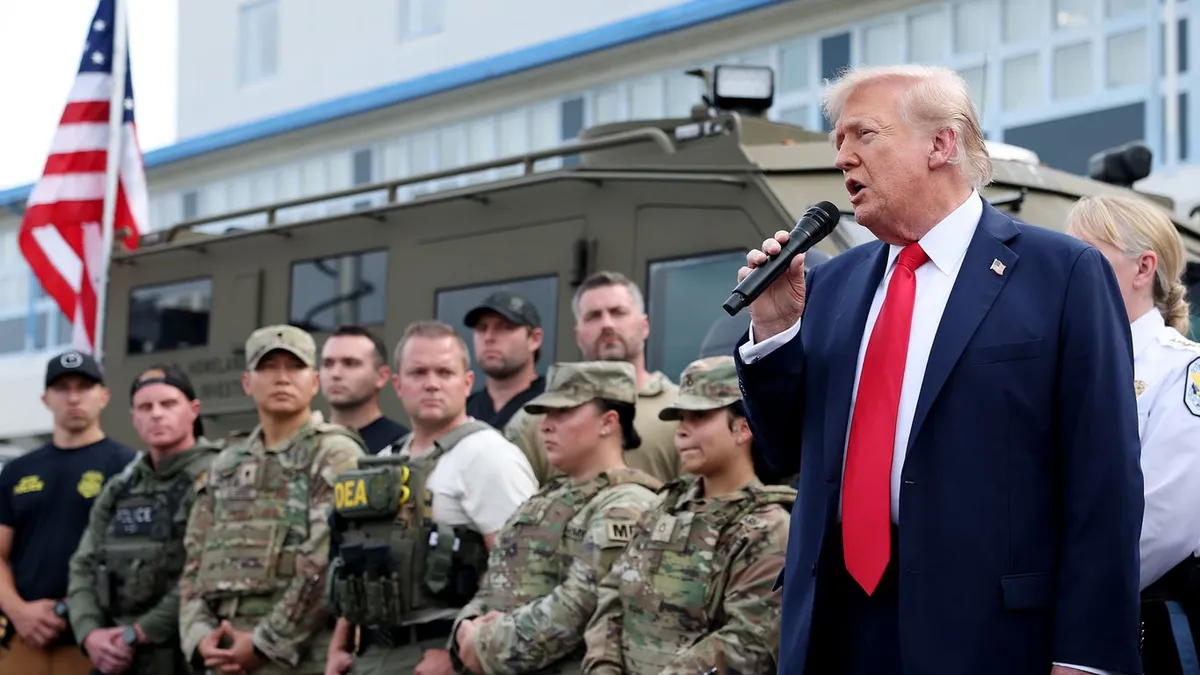
In a bold move during the seventh cabinet meeting of his term, President Donald Trump announced that the Trump administration will pursue the death penalty as a potential punishment for homicides occurring in Washington, D.C. This announcement comes amid the president's assertion of direct control over the nation’s capital, which he claims is facing a severe crime epidemic.
Despite the president's alarming claims, a reality check reveals that violent crime in D.C. has actually seen a decline in recent years. This contradictory information raises questions about the administration’s portrayal of safety and crime in the capital. During his remarks, Trump stated, "If somebody kills somebody in the capital, Washington, D.C., we're going to be seeking the death penalty. And that's a very strong preventative." He went on to express uncertainty about whether the nation is ready for such drastic measures, stating, "I don't know if we're ready for it in this country, but we have no choice."
In a swift response to what he describes as escalating crime rates, Trump has taken significant steps, including seizing control of D.C.'s police force and deploying the National Guard within the city. Earlier this month, he emphasized that his Justice Department would aggressively pursue the death penalty, echoing a commitment he made during his first administration, where he set execution records.
As it stands, capital punishment is legal in 27 states across the U.S., and both the federal government and the U.S. military maintain the option of the death penalty. However, it's essential to note that the death penalty has a complicated history in Washington, D.C. The Supreme Court nullified the death penalty in D.C. in 1972, and the D.C. Council officially repealed it in 1981. Additionally, a 1992 referendum, mandated by Congress, resulted in D.C. residents voting against the death penalty by a margin of 2-1.
As President Trump continues to advocate for a tough-on-crime stance and the implementation of the death penalty, the future of capital punishment in Washington, D.C., remains uncertain. The administration's push for such measures raises critical discussions about the balance between public safety and the legal framework surrounding capital punishment in the nation’s capital.